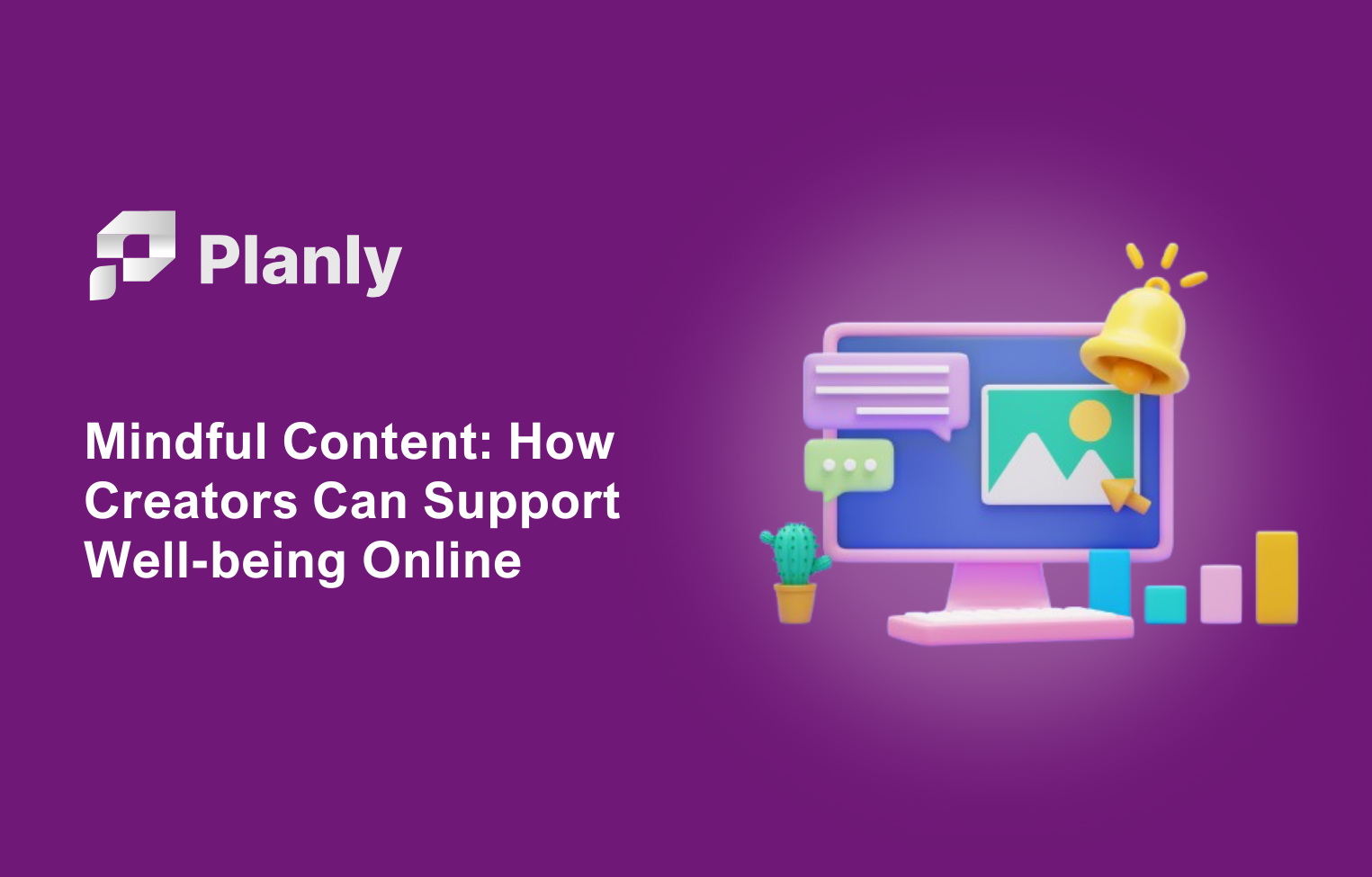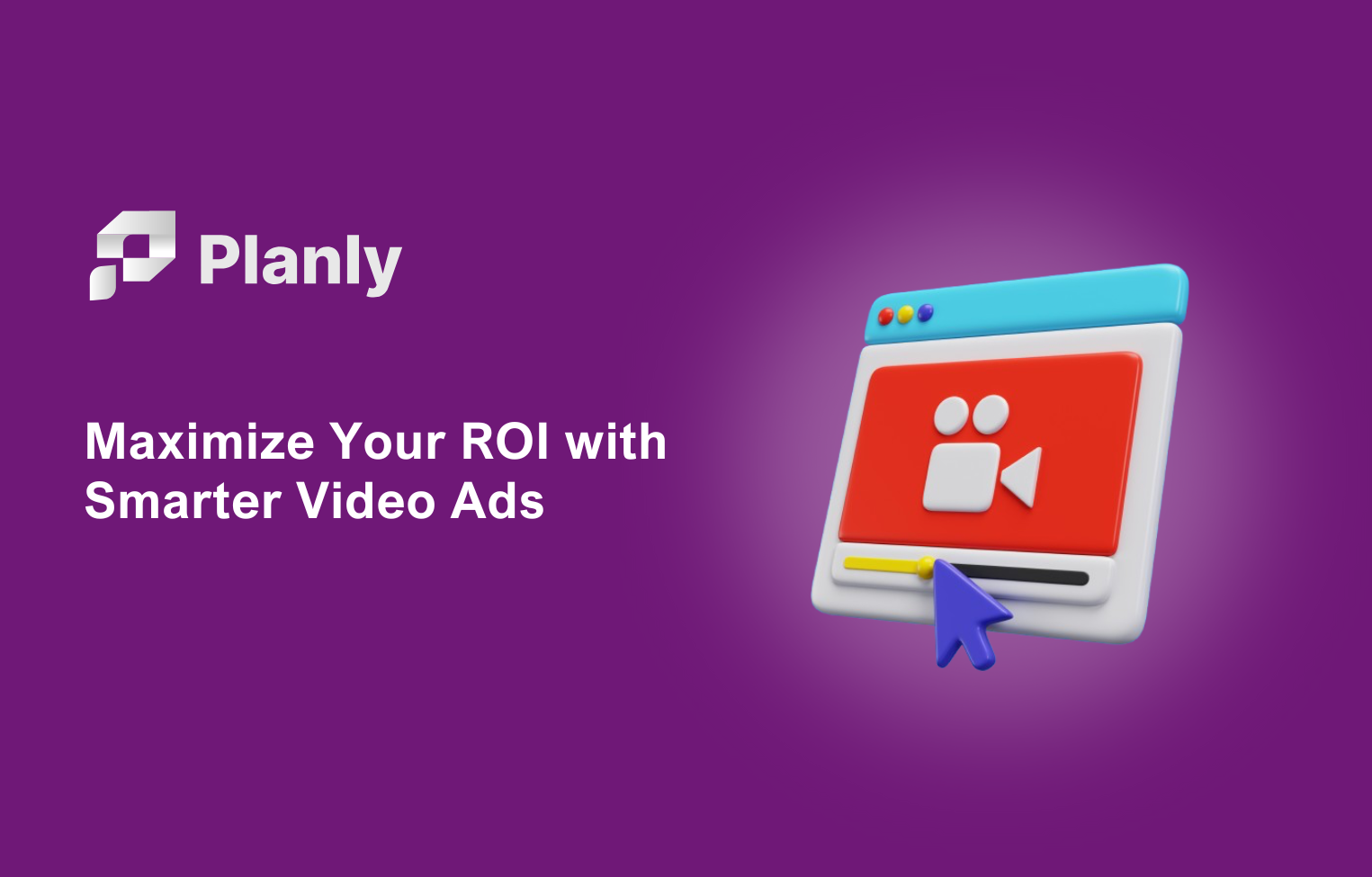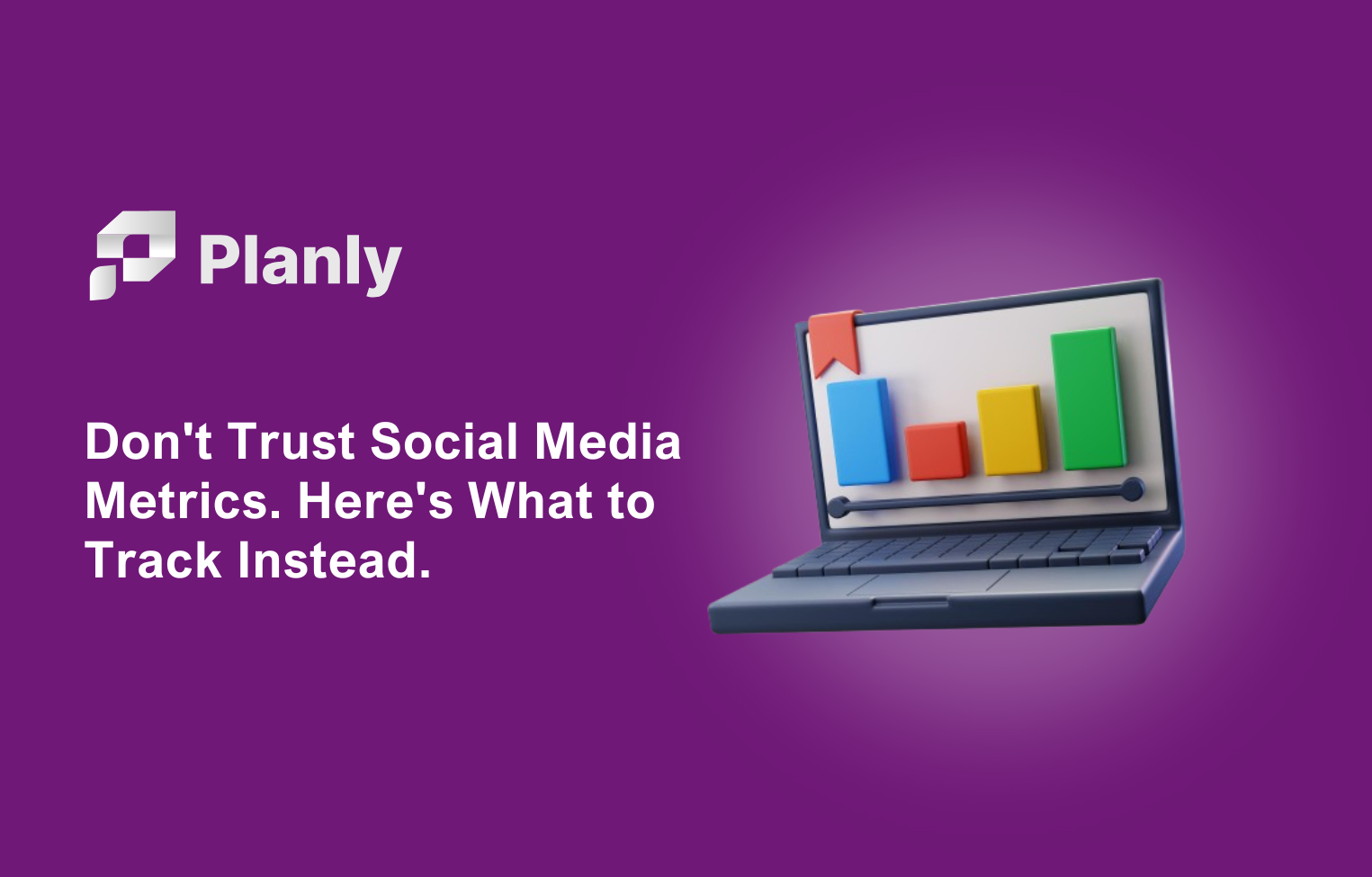Do you need help choosing the right social media platforms to target your buyers? With so many options available, it can be overwhelming to determine where to focus your social media marketing efforts. But fear not because this post will explore the key factors you must consider to make the best decision for your business.
From identifying your target audience and understanding your target audience to select the proper social media channels and optimization strategies, we'll cover everything you need to know to select the right social media platforms for your business.
So, to maximize your social media marketing efforts and achieve better results, keep reading to learn how to choose the right social media platforms for your target buyers.
1. Identify your target audience
Choosing the best social media channels for your business is crucial to ensure that you reach your target buyers with your marketing messages. It's essential to consider various factors like buyer personas and user behavior, use native audience insights, and send preference surveys via email campaigns to determine the right social media platforms for your target audience.
If you have to write social media content for eCommerce, then since your buyers are specific, the content you write for them should be unique.
Here are vital factors to consider when determining the right social media platforms for your target buyers:
Buyer personas
Creating buyer personas is one of the critical steps in identifying your target audience. You can select the right social media platforms by understanding your target buyers' demographic and psychographic information.
Knowing how to identify the right social media platforms for your target audience based on your target buyers' behavior is also essential. For example, if your target audience is active on Instagram, you should create engaging visual content, while on LinkedIn, you should focus on professional and informative content.

User behavior
It's essential to understand the behavior of your target audience on social media platforms. For example, if your target audience is more likely to be active on Instagram, you should focus your efforts on creating visual content that is engaging and shareable.
On the other hand, if your target audience is more likely to be active on LinkedIn, you should focus on creating professional and informative content that showcases your expertise. Knowing how to select the best social media sites for your niche market based on your target buyers' behavior will help you to create content that resonates with them.
Use native audience insights on preferred platforms
When determining the right social media platforms for your business, it's important to use native audience insights tools to understand your target audience clearly. Once you have a general idea of who may use your products, you can begin your search online to identify which of your target buyers most frequent social media platforms.
For example, Facebook's audience insights tool offers endless research opportunities, and most social media sites offer specific profiles for businesses that use their platform. By leveraging these tools, you can identify your target buyers' right social media platforms.
Send preference surveys via email campaigns
One way to determine the right social media platforms for your target buyers is to create email survey campaigns that ask your subscribers about their social media preferences. This helps you understand which platforms your audience is most active on and allow you to tailor your social media strategy accordingly.
When new subscribers sign up for your email list, you can ask them about their favorite social media platforms and invite them to join you by sharing your profiles. This way, you can ensure that you use the right social media platforms for your target buyers and maximize your visibility and engagement by choosing the right social media platforms.
2. Analyze different social media platforms
Choosing the right social media platforms is crucial for the success of your social media marketing strategy. To ensure that you are picking the right social media platforms for effectively targeting the right audience, you must know how to choose social media platforms that are right for your target buyers.
One of the most important factors to consider is the platform demographics. The platform you choose should align with the demographic profile of your target buyers, so if your target buyers are young adults, platforms like TikTok or Instagram may be the right social media platforms for you.
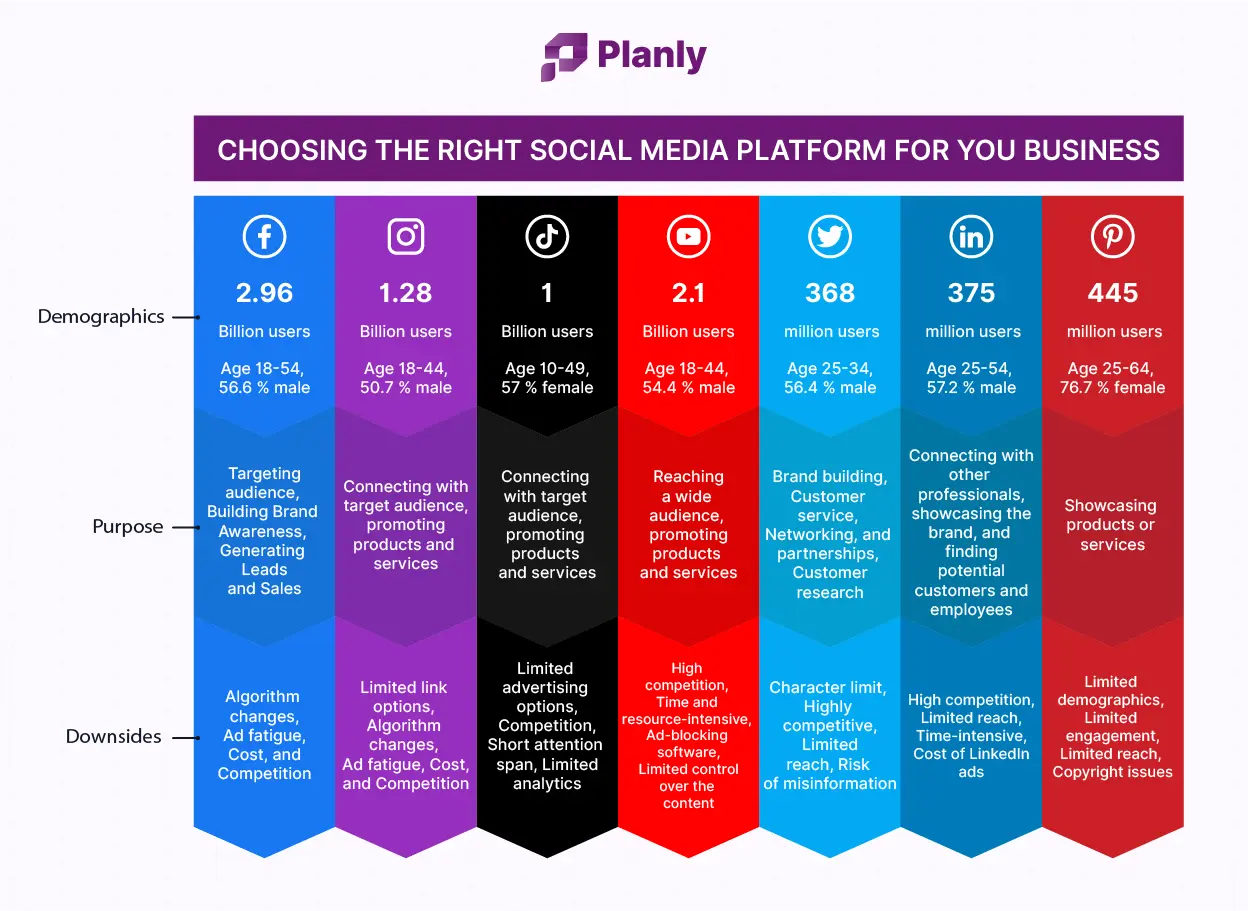
Platform demographics
Engagement levels and optimization are also crucial factors when choosing social media platforms. You want to choose platforms where your target buyers are active and engaged and where you can optimize your engagement levels.
Social media engagement strategies such as social listening, community management, and hashtag can help you increase your visibility and engagement on the platform.
For example, if your target buyers are predominantly young adults, you may want to focus on platforms like TikTok or Instagram. Understanding user behavior and engagement metrics on different platforms can help refine your buyer persona and ensure you're targeting the right audience.
Engagement levels and optimization
When it comes to social media marketing, choosing the right social media platforms is crucial. Engagement levels on a platform are a vital consideration, so you want to select platforms where your target buyers are active and engaged.
This can be determined by metrics like the number of daily active users, time spent on the platform, and frequency of interactions like likes, comments, and shares. You can optimize engagement levels and increase visibility by implementing social listening, community management, and hashtags.
Content format and copywriting
Another essential factor to consider is content format and copywriting. Different social media platforms have unique content formats that work best, so selecting platforms that align with your brand and resonate with your target buyers is essential.
Copywriting and visual content are significant in branding, reputation, and customer engagement. Therefore, choosing the right social media platforms that support your content strategy is crucial to success.
Source: Datareportal
Advertising options and retargeting
Advertising is another essential aspect of social media marketing, and different platforms offer different advertising options and costs. Choosing platforms that allow you to target your audience with relevant and engaging ads effectively is essential.
Consider social media targeting strategies for better audience engagement by demographics, interests, behaviors, and factors like ad formats and costs. Retargeting is also an effective advertising technique to help you reach customers who have interacted with your brand on the right social media platforms.
By analyzing these key factors, you can understand how to choose social media platforms for your target buyers. Thus build a strong community around your brand and build a strong community around your brand. Remember to regularly evaluate and adjust your social media strategy based on customer feedback, user behavior, and the changing landscape of social media platforms.
3. Evaluate your business goals
Social media has become an integral part of any business's marketing strategy. It is a powerful tool to help businesses reach their target audience, build brand awareness, and engage with narrowing down social media channels to reach your ideal customers.
However, with so many social media platforms available, it can take time to determine which ones to use to achieve your business goals. The first step is to evaluate your business goals to identify the right social media platforms for targeting your buyers.
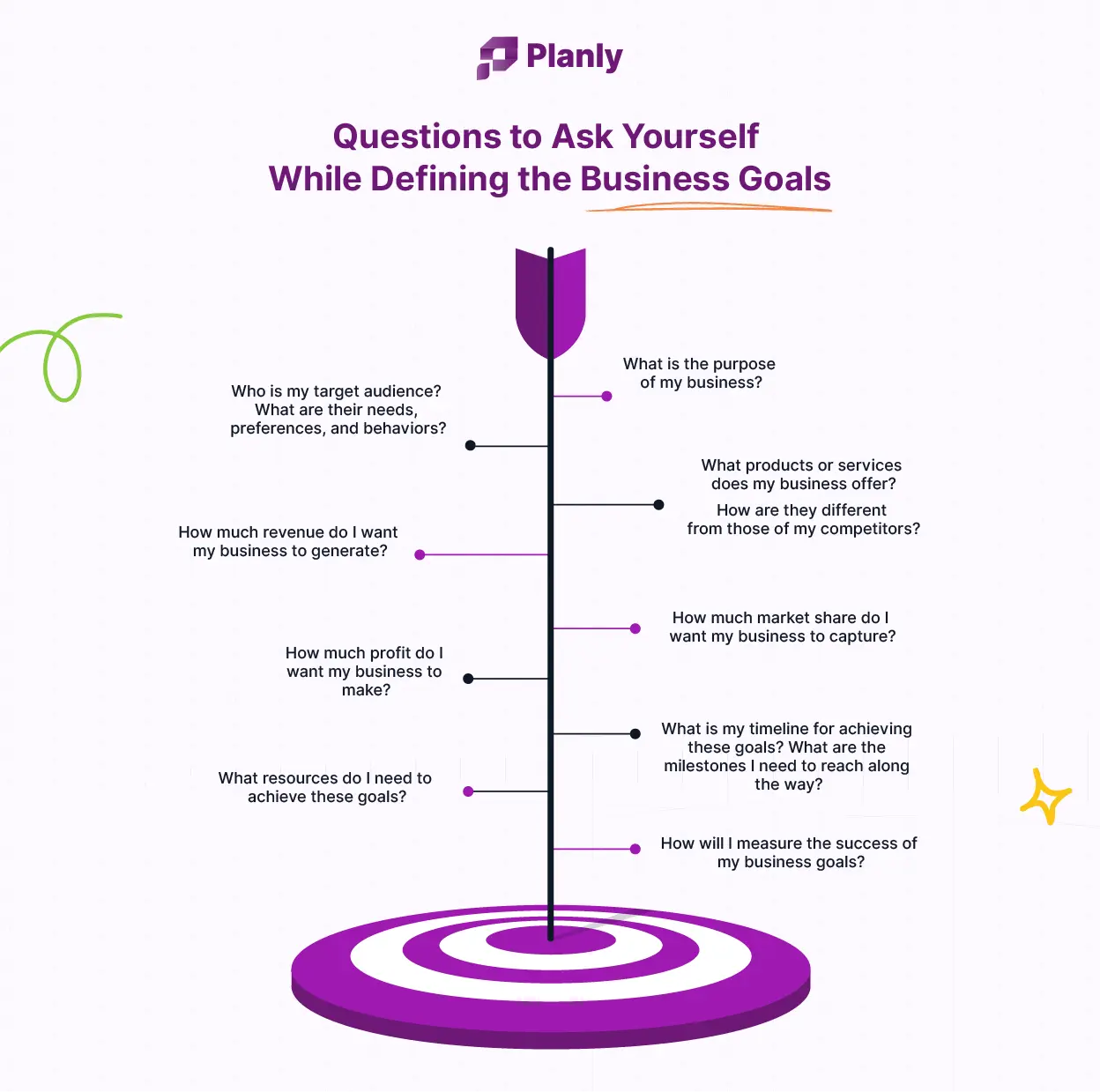
Here are some criteria for choosing the right social media platforms for your marketing efforts:
Define your business goals and target buyers
Before choosing social media platforms, you need to define your business goals. This will help you choose the right social media platforms that align with your business objectives and reach your target audience effectively.
What are you trying to achieve through social media marketing? Are you looking to increase brand awareness, generate leads, drive website traffic, or improve customer engagement?
Defining your goals will help you choose the right social media platforms that are most appropriate for your business. Additionally, identifying your target buyers and their interests, behaviors, and demographics will help you narrow down the best platforms to reach and engage them.
Research social media platforms
Researching social media platforms is vital in choosing the right platforms for your business. Analyze platform demographics, features, and advertising options. For example, LinkedIn is a professional networking platform better suited for social media platforms for B2B targeting, whereas Instagram is a visual platform better suited for B2C businesses. It's important to consider user behavior and trends to determine which platforms are popular among your target buyers.
Analyze your results
After choosing the right social media platforms, you must analyze your results regularly. Monitor your engagement metrics, reach, impressions, and other key performance indicators (KPIs) to see if you are achieving your business goals.
Use analytics and insights to adjust your strategy and optimize your content for better performance. Social listening and customer feedback can also help you understand how your audience perceives your brand and what improvements you can make to enhance their experience.
In conclusion, evaluating your business goals is critical in choosing the right social media platforms. Defining your goals and target buyers, researching social media platforms, considering your resources, and analyzing your results can help you choose the platforms that align with your business objectives and reach your target audience effectively.
Incorporating appropriate engagement strategies, social media policies, and social media etiquette can also help you build a community and reputation on your chosen platforms.
4. Consider your resources
When choosing the right social media platforms for your business, it's important to consider your available resources. This includes your budget, team size, and time and effort you can allocate to social media marketing.
To choose the right social media platforms, start by evaluating your business goals and identifying your target buyers. Then, consider your available resources and align your platform selection with your goals and audience.
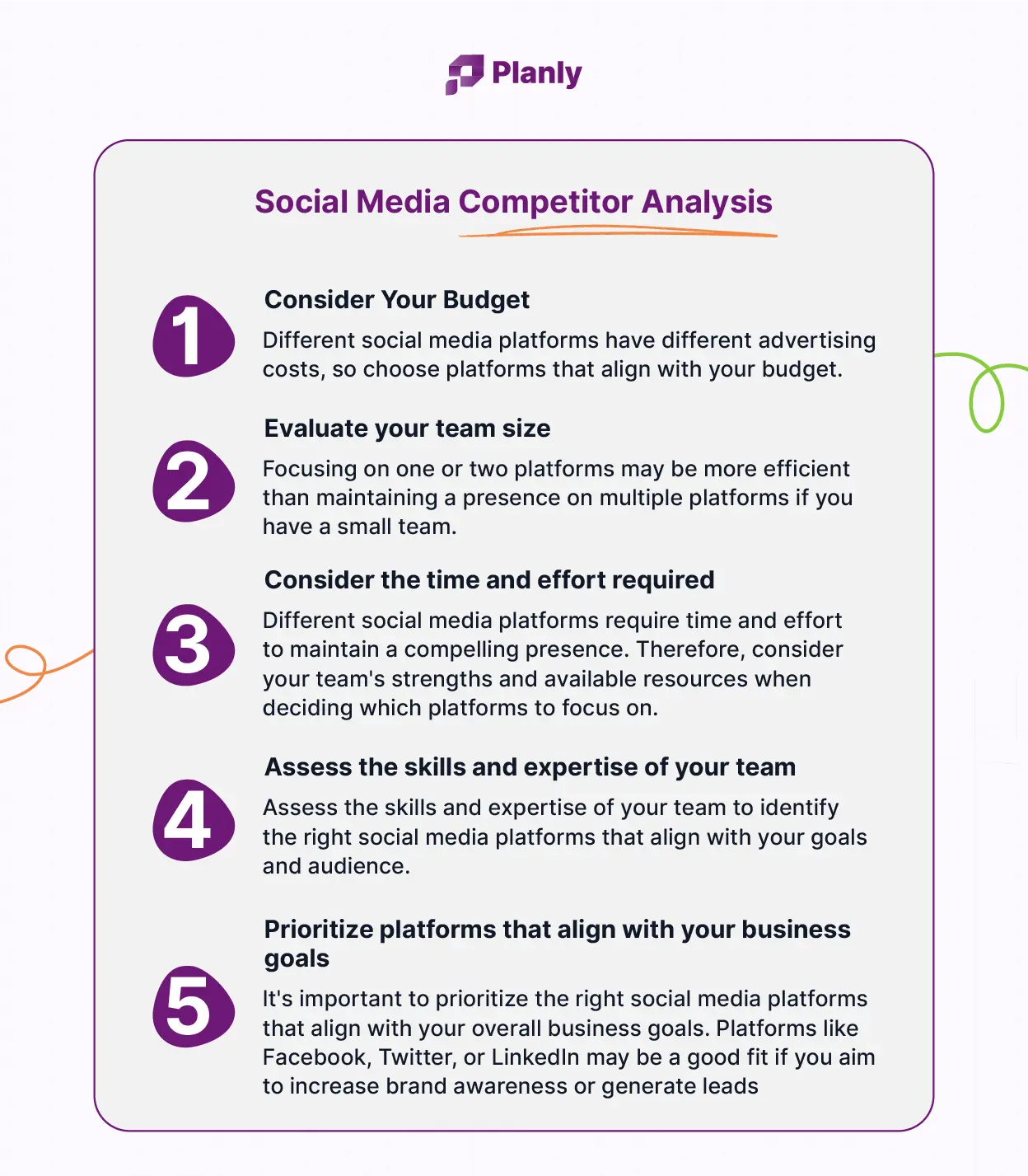
Here are some tips for finding the most effective social media platforms for your target buyers:
Consider your budget
Considering your budget is essential when choosing the right social media platforms. Different social media platforms have different advertising costs, so choose platforms that align with your budget. For example, with low or no advertising costs, platforms such as Facebook, Twitter, or LinkedIn can be a good option if you have a limited budget.
Evaluate your team size
The size of your team can also impact your selection of the right social media platforms. Focusing on one or two platforms may be more efficient than maintaining a presence on multiple platforms if you have a small team.
If you have a larger team, you may have the resources to manage multiple platforms and engage with your audience more extensively, allowing you to determine the right social media platforms for your business.
Consider the time and effort required
Different social media platforms require time and effort to maintain a compelling presence. Therefore, consider your team's strengths and available resources when deciding which platforms to focus on.
Assess the skills and expertise of your team to identify the right social media platforms that align with your goals and audience. By prioritizing the right social media platforms, you can maximize the return on investment for your social media efforts and achieve your business objectives.
Assess the skills and expertise of your team
Assess the skills and expertise of your team to identify the right social media platforms that align with your goals and audience. Different social media platforms require different skills and expertise.
For example, if you want to focus on video content, you'll need team members with experience in video production and the right social media platforms to showcase your videos. Similarly, to run paid social media campaigns, you'll need team members with experience in digital advertising and for picking the right social media platforms for effective targeting to target your audience effectively.
Prioritize platforms that align with your business goals
Ultimately, it's crucial to prioritize the right social media platforms that align with your overall business goals. Platforms like Facebook, Twitter, or LinkedIn may be a good fit if you aim to increase brand awareness or generate leads.
By considering your available resources and aligning your platform selection with your business goals, you can choose the right social media platforms for your target buyers and get the most value out of your marketing efforts.
5. Determine your social media strategy
Determining the right social media platforms for your business can be overwhelming, but you can simplify the process with the proper steps. Social media has become a crucial component of any business's marketing strategy. Choosing the right social media platforms is crucial to effectively engage with your target audience and achieve your business goals.
Define your goals
Before creating your social media strategy, you need to define your goals. What do you want to achieve through your social media efforts? Are you looking to increase brand awareness, drive website traffic, generate leads, improve customer engagement, or boost sales? Defining your goals will help you identify the social media platforms, content, and tactics that are most appropriate for your business.
Research your competitors
Researching your competitors is an essential step in developing your social media strategy. Analyze their social media presence, the type of content they share, their engagement metrics, and the social media platforms they use to ensure you are targeting the right social media platforms for your business.
This will help you identify gaps in their strategy and areas where you can differentiate yourself by utilizing the right social media platforms.
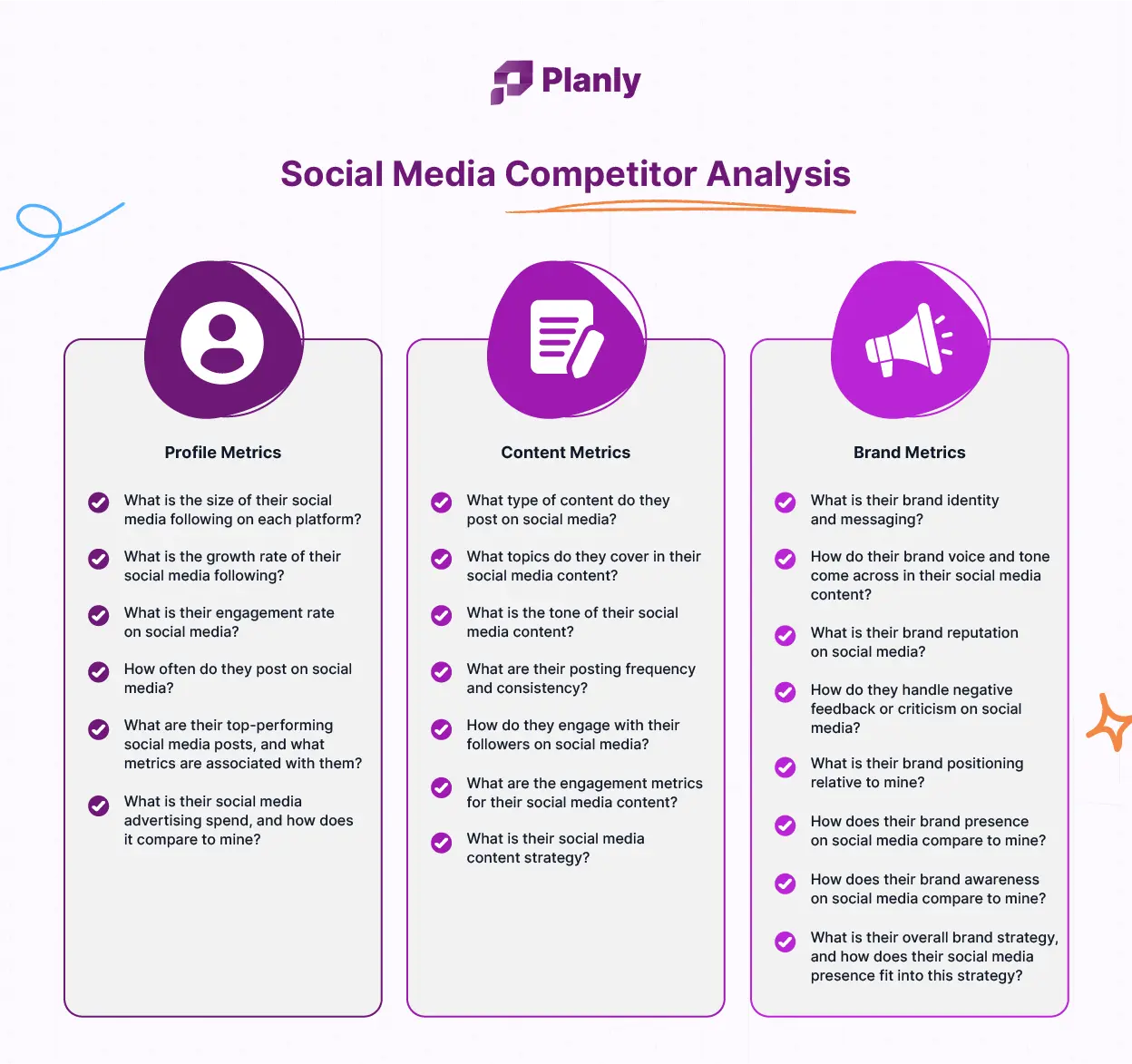
Develop your content strategy
Developing your content strategy is crucial. Based on your goals, target audience, and social media platforms, create a content calendar outlining the type of content you'll be sharing, the frequency of posts, and the right social media platforms you'll use.
Consider using visual content such as images and videos and written content like blog posts and social media captions to make your content more engaging.
For this, you must be active on social media platforms. If you want to share the same post on the social media platforms of your choice at the same time or at different times, you can use social media scheduling tools.
Use Planly social media management tool for this. Planly is your best friend on social media. You can prepare and schedule your posts on 8 social media simultaneously. With various integrations and professional features, your social media content will be ready faster and you will save time.

Monitor and measure your results
Monitoring and measuring your social media results is critical to determine the success of your strategy. Track your engagement metrics, reach, impressions, and other key performance indicators (KPIs) to see if you're achieving your goals. Analyze your results regularly to identify improvement areas and adjust your strategy accordingly.
By following these steps, you can effectively determine the right social media platforms for your target buyers, create engaging content, and monitor your results to ensure your social media strategy is aligned with your business goals. With the right social media strategy, you can build your brand, engage with your audience, and drive business results.
Final Thoughts
Choosing the right social media platforms for your business is critical to reaching and engaging with your target audience. Understanding your buyer persona, defining your business goals, researching social media platforms, analyzing your results, and considering your resources are essential in making an informed decision.
Using these strategies, you can identify the right social media platforms that align with your business objectives and effectively reach your target buyers. Remember, it's not about being on every platform but on the right platforms that allow you to connect with your audience meaningfully.





